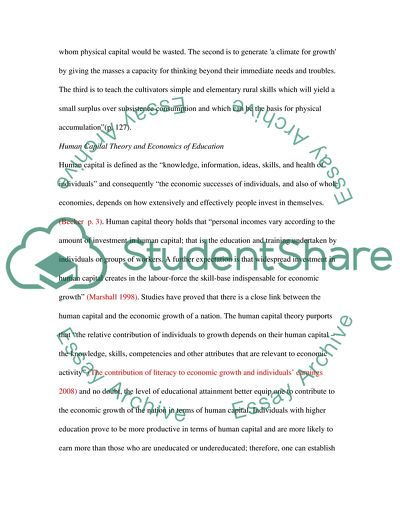Cite this document
(A Close Link Between the Educational Attainment and Earnings of a Essay, n.d.)
A Close Link Between the Educational Attainment and Earnings of a Essay. Retrieved from https://studentshare.org/education/1719533-economics-of-education-explain-the-link-between-educational-attainment-and-earnings-using-human-capital-theory
A Close Link Between the Educational Attainment and Earnings of a Essay. Retrieved from https://studentshare.org/education/1719533-economics-of-education-explain-the-link-between-educational-attainment-and-earnings-using-human-capital-theory
(A Close Link Between the Educational Attainment and Earnings of a Essay)
A Close Link Between the Educational Attainment and Earnings of a Essay. https://studentshare.org/education/1719533-economics-of-education-explain-the-link-between-educational-attainment-and-earnings-using-human-capital-theory.
A Close Link Between the Educational Attainment and Earnings of a Essay. https://studentshare.org/education/1719533-economics-of-education-explain-the-link-between-educational-attainment-and-earnings-using-human-capital-theory.
“A Close Link Between the Educational Attainment and Earnings of a Essay”, n.d. https://studentshare.org/education/1719533-economics-of-education-explain-the-link-between-educational-attainment-and-earnings-using-human-capital-theory.


